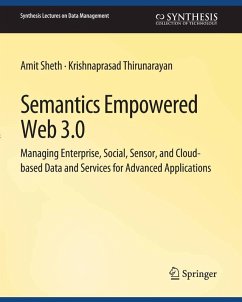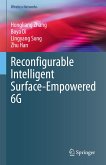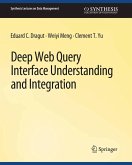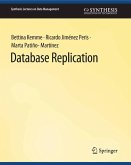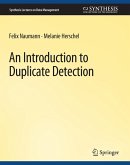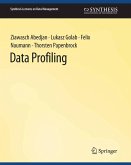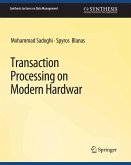After the traditional document-centric Web 1.0 and user-generated content focused Web 2.0, Web 3.0 has become a repository of an ever growing variety of Web resources that include data and services associated with enterprises, social networks, sensors, cloud, as well as mobile and other devices that constitute the Internet of Things. These pose unprecedented challenges in terms of heterogeneity (variety), scale (volume), and continuous changes (velocity), as well as present corresponding opportunities if they can be exploited. Just as semantics has played a critical role in dealing with data heterogeneity in the past to provide interoperability and integration, it is playing an even more critical role in dealing with the challenges and helping users and applications exploit all forms of Web 3.0 data. This book presents a unified approach to harness and exploit all forms of contemporary Web resources using the core principles of ability to associate meaning with data through conceptual or domain models and semantic descriptions including annotations, and through advanced semantic techniques for search, integration, and analysis. It discusses the use of Semantic Web standards and techniques when appropriate, but also advocates the use of lighter weight, easier to use, and more scalable options when they are more suitable. The authors' extensive experience spanning research and prototypes to development of operational applications and commercial technologies and products guide the treatment of the material. Table of Contents: Role of Semantics and Metadata / Types and Models of Semantics / Annotation -- Adding Semantics to Data / Semantics for Enterprise Data / Semantics for Services / Semantics for Sensor Data / Semantics for Social Data / Semantics for Cloud Computing / Semantics for Advanced Applications
Dieser Download kann aus rechtlichen Gründen nur mit Rechnungsadresse in A, B, BG, CY, CZ, D, DK, EW, E, FIN, F, GR, HR, H, IRL, I, LT, L, LR, M, NL, PL, P, R, S, SLO, SK ausgeliefert werden.
Hinweis: Dieser Artikel kann nur an eine deutsche Lieferadresse ausgeliefert werden.

